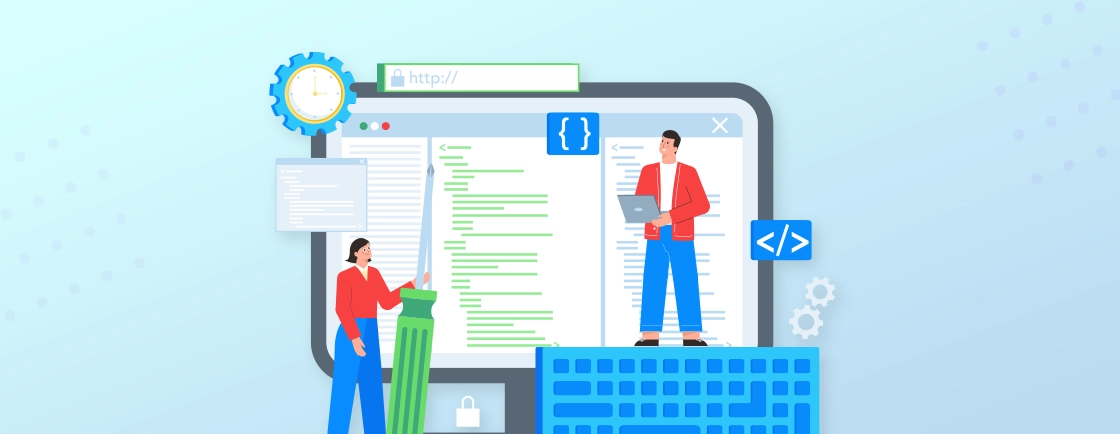Table of Contents
For any business to succeed, efficiency is necessary. Companies are always on the lookout for new ways they can make their processes easier and reduce manual work. One area where automation makes a big difference is invoicing. With an automatic invoice system, businesses save time, lower the chance of errors, and stay sorted with their finances.
In this blog, we’ll discuss what an automatic invoice system is and find out why it is essential for modern businesses. We’ll also look at some invoice automation best practices. Let’s get started.
What is an Automatic Invoice System?
An automatic invoice system is a solution that creates, sends, and manages invoices on its own. What this means is instead of creating invoices manually, entering every detail, calculating taxes and discounts, you let the system do all this. Once the sale or service is recorded, the invoice is generated, often with just a few clicks. This automation can happen in real-time, meaning invoices are sent immediately after a transaction, keeping the business running smoothly.
Key Features of an Automatic Invoice System:
- Quick Invoice Creation: Automatically generates invoices based on templates, saving time and reducing errors.
- Recurring Billing: Automatically sends invoices for subscription-based services or regular payments.
- Payment Reminders: Sends automatic reminders to clients when payments are due or overdue.
- Customizable Templates: Personalize invoices with your logo, payment terms, and other details.
- Cloud Storage: Stores invoices digitally for easy access and tracking at any time.
In short, an automatic invoice system simplifies the entire billing process by handling invoice creation, sending, and management automatically. Features like quick invoice generation, recurring billing, and real-time reminders, highlight the importance of invoice management systems and how businesses save time and stay organized using them.
Why Automatic Invoice System is Essential For Modern Businesses?
Modern businesses need automatic invoice systems for several reasons. Each contributes to better efficiency, accuracy, and scalability. The main benefits of using an automatic invoice system are:
Time-Saving
- Automation of Repetitive Tasks: Invoices can be generated, sent, and tracked automatically. The need for manual entry is reduced, and repetitive tasks are completed quickly.
- Faster Billing: Automatic systems speed up the invoicing process, enabling businesses to issue invoices promptly and reduce delays in payment collection.
Accuracy and Reduced Errors
- Minimized Human Error: When an invoice is created manually, it is prone to mistakes, such as incorrect figures, duplicate entries, or missing information. Automated systems use templates and pre-set rules, which significantly reduce the likelihood of errors.
- Consistency in Format: An automatic system ensures invoices are consistently formatted, maintaining professionalism and meeting legal or tax requirements.
Improved Cash Flow Management
- Faster Payments: Automatic invoicing can be set to send reminders or follow-ups, encouraging faster payments from clients.
- Reduced Delays: With automatic generation and delivery of invoices, businesses can reduce the waiting time for customers to receive and process their bills.
Enhanced Record-Keeping and Organization
- Centralized Data: All invoices are stored digitally, making it easier to access, search, and track payment histories.
- Financial Reports: Automatic invoicing systems can integrate with accounting software, creating real-time financial reports that help businesses monitor cash flow, expenses, and profits.
Cost Efficiency
- Lower Operational Costs: Automation reduces the need for manual labor in invoicing and document management, freeing up resources for more strategic tasks.
- Reduced Paperwork: By digitizing invoices, companies can save on paper, printing, and mailing costs, contributing to cost savings.
Compliance and Legal Requirements
- Adherence to Tax Regulations: Automated invoice systems can help ensure compliance with tax laws and regulations by including the necessary details (e.g., VAT numbers, tax rates) and by generating reports for audits.
- Audit Trail: Automated systems can maintain a clear audit trail, making it easier to trace and verify the details of each transaction if necessary.
Customization and Flexibility
- Tailored Invoices: Automatic systems allow businesses to customize invoices with their logo, branding, and payment terms, giving them a professional appearance.
- Recurring Invoices: For businesses with subscription models, an automated system can create recurring invoices at regular intervals, saving significant manual effort.
Scalability
- Adaptable to Growth: As a business grows and deals with more customers, the automatic system can easily handle a larger volume of invoices without additional effort or resources.
- Handling Multiple Currencies or Languages: International businesses can benefit from automatic invoicing systems that support multiple currencies and languages, reducing complexity.
Better Customer Experience
- Transparency: Clients receive clear and accurate invoices with all necessary information (due date, amount, etc.), helping to reduce misunderstandings or disputes.
- Convenience: Automated reminders and easy online payment options make it more convenient for customers to settle invoices quickly.
Data Insights and Analytics
- Tracking Payment Patterns: Businesses can analyze their invoicing data to identify trends in payments, detect late-paying clients, and manage overdue balances more effectively.
- Performance Metrics: The system can provide insights into business performance, helping to identify areas for improvement in the invoicing and payment process.
Automatic invoice systems are essential for modern businesses as they improve efficiency, accuracy, and scalability. By making repetitive tasks automatic and speeding up billing, businesses can manage finances better.
Best Practices for Invoice Automation
To make the most of invoice automation, it’s important to follow a few key practices that ensure efficiency, accuracy, and smooth operations.
- Use Clear and Consistent Invoice Templates: Ensure that your invoice templates are easy to read and professional. Keep the layout consistent for all clients to avoid confusion.
- Set Up Recurring Invoices: For subscription or regular services, set up automated recurring invoices to ensure they are sent on time without manual effort.
- Include All Necessary Information: Make sure each invoice includes all important details, like payment terms, due dates, and any tax information, to prevent delays or disputes.
- Automate Payment Reminders: Set up automatic reminders for upcoming or overdue payments to help clients stay on track and reduce late payments.
- Integrate with Accounting Systems: Link your invoice automation system with accounting or financial software to streamline record-keeping and reporting, ensuring everything stays up-to-date.
With these best practices, businesses can improve their invoicing process, save time, and reduce errors.
Let’s Summarize
Having an automatic invoice system has become a necessity. The reasons are simple. It saves time, reduces errors, and helps businesses stay organized and efficient. Invoice automation speeds up the billing process, leading to a healthy cash flow. It improves resource utilization so that the focus is on growth and customer satisfaction.
With the right features and best practices, an automatic invoice system can make your invoicing process effortless.
Looking for a simple and efficient way to automate your invoicing? Check out our solution today!
FAQs on Automatic Invoice System
Is invoice automation suitable for small businesses?
Yes, invoice automation is ideal for small businesses as it saves time, reduces errors, and helps maintain organization without needing a large team.
How does invoice automation improve cash flow?
By sending invoices on time, automating reminders, and reducing delays, invoice automation helps businesses receive payments faster, improving cash flow.
Can an automatic invoice system be customized?
Yes, most automatic invoice systems allow businesses to customize templates with logos, payment terms, and other details to match their brand.
Explore Our Expert Guides
Dive into detailed tutorials, tips, and strategies designed to help you grow, innovate, and solve problems efficiently.





